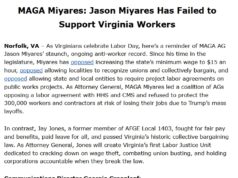SPONSORED CONTENT
Understanding Workers Compensation
There are millions of possible safety threats within each workplace, especially when there is heavy machinery involved. Each situation is unique and can be difficult for both parties when they occur. As covered in this article, understanding the laws and your rights and options will help prepare for Workers’ Compensation situations.
As injuries are difficult to predict, many individuals have never had to worry about Workers’ Compensation. For those working in physically demanding industries, it is essential to understand the basics. In most cases, it can be beneficial for individuals to seek assistance from a lawyer to help navigate through the legal process of a Workers’ Compensation lawsuit.
Background and Influence
Beginning as early as 1908, the United States has been protecting federal civilian employees with Workers’ Compensation. Following the federal government’s lead, most states adopted their laws regarding worker protection in the 1910s and 1920s.
While this was a significant milestone in the U.S. government and legal systems, the inspiration for worker protection came from European influence. Germany has been credited as one of the first and was followed by other countries, including England, as they introduced laws protecting workers as early as 1867.
State Legislation
Almost all states in the U.S. require Workers’ Compensation insurance for private companies, except Texas. In these states, the laws protect companies through insurance, barring workers from filing individual lawsuits against the company for the injuries they obtain on the job.
Workers’ Compensation benefits vary depending on the type, severity, and location of the accident. Each law is an agreement between the state and companies that acknowledge the categories and principles of the Workers’ Compensation benefits. The goal is to ensure that workers are protected and employers have limited liability in the case of an accident.
Employee Damages
The law’s effects are not dependent on placing fault, as this could be unclear or costly. Workers’ Compensation may cover lost wages, the cost of medical treatment, rehab, and recovery.
When injuries occur, employees have little room for negotiation or opposition. Workers’ Compensation is either awarded for partial or complete disability or not at all, and lawsuits are nearly impossible for employees to file against employers. Machinery manufactures may still be responsible for the damages.
“Injured employees cannot pursue any pain and suffering from the company,” says Attorney Ronald Hulsey, “but lawyers can help ensure proper compensation is received, including all past and future medical treatment, lost income, and the value of any permanent disability.”
Exceptions and Changes
Laws have become standardized throughout the states, however there are exceptions and boundaries to Workers’ Compensation coverage.
The system is in place to create a faultless structure to protect workers and employers quickly and efficiently. Since legal action can take a long time, Workers’ Compensation laws expedite the process without creating too much damage for either party. Providing support for both sides is effective but can be confusing for the injured party.
Enlisting Legal Support
Regardless of state laws, seeking legal protection can help ensure security in the case of a work-related injury. Direction from a seasoned attorney can help anyone undergoing a Workers’ Compensation lawsuit, no matter the severity of the case.
With the increase in Workers’ Compensation in the United States over the past decade, education and preparation are more important than ever for workers if anything should occur while on the job. Knowing the basics and talking with a lawyer can help prepare for an accident before they happen while on the job.













